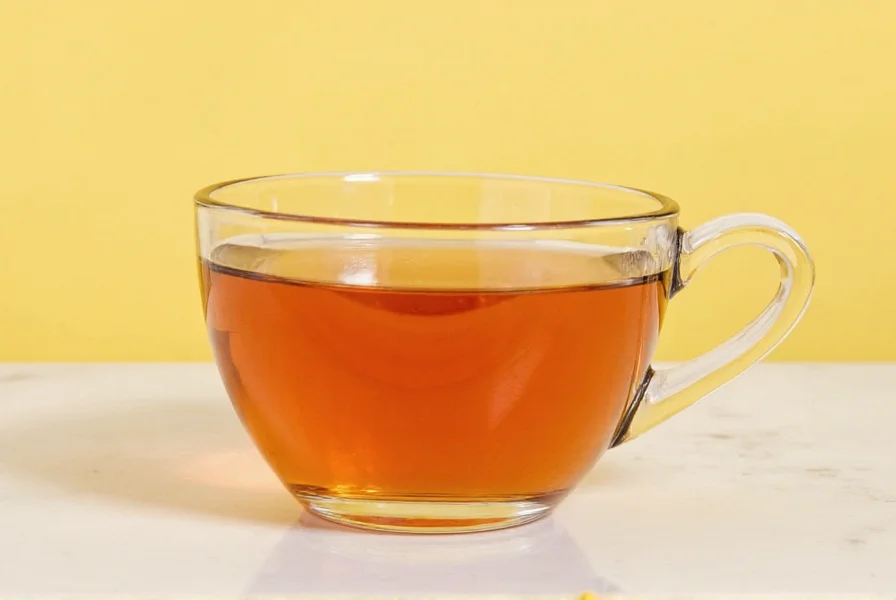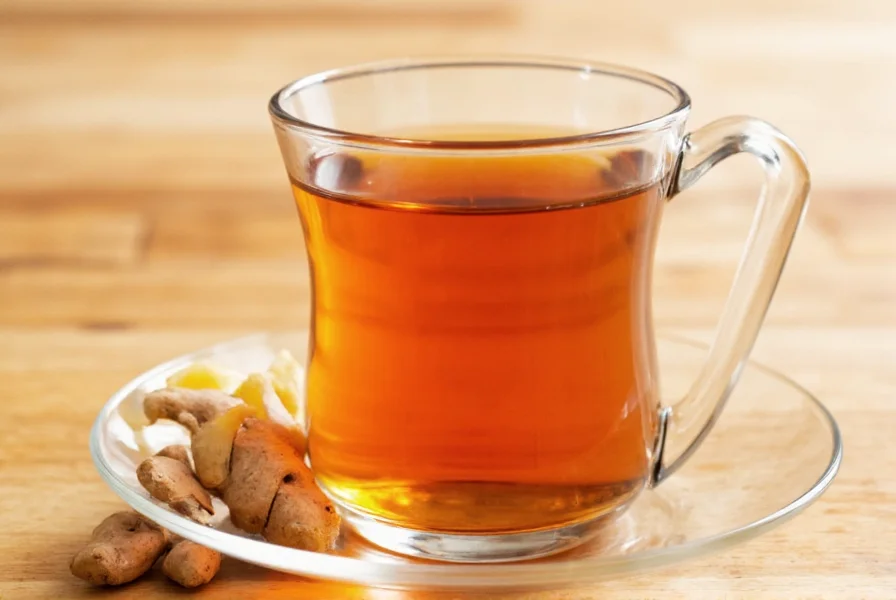Heartburn affects millions of people worldwide, prompting many to seek natural remedies like ginger root tea. While not a replacement for medical treatment, ginger has been used for centuries in traditional medicine to address digestive issues. Modern research provides some evidence supporting its use for mild heartburn relief, though results vary depending on individual physiology and the underlying cause of acid reflux.
The Science Behind Ginger and Digestive Health
Ginger contains bioactive compounds called gingerols and shogaols that demonstrate anti-inflammatory and antioxidant properties. These compounds may help reduce gastric contractions and accelerate gastric emptying, potentially decreasing the likelihood of stomach acid flowing back into the esophagus.
A 2020 review published in Nutrients analyzed multiple studies on ginger's effects on gastrointestinal disorders. Researchers noted ginger's potential to modulate gastric motility and reduce inflammation in the digestive tract, though they emphasized the need for more targeted studies specifically on heartburn relief.
| Key Compounds in Ginger | Function | Relevance to Heartburn |
|---|---|---|
| Gingerols | Anti-inflammatory agents | May reduce esophageal irritation |
| Shogaols | Antioxidants | Protect digestive tract lining |
| Zingerone | Digestive stimulant | Promotes efficient stomach emptying |
Preparing Effective Ginger Tea for Heartburn Relief
Not all ginger preparations work equally well for heartburn. The method of preparation affects the concentration of active compounds:
- Fresh ginger root: Use 1-2 inches of peeled, sliced ginger root per 8 ounces of water
- Simmer gently: Boil water first, then reduce to simmer for 10-15 minutes (avoid vigorous boiling which degrades compounds)
- Cool slightly: Drink when warm but not hot (140°F/60°C or lower) to avoid further irritating the esophagus
- Optional additions: A small amount of honey may help coat the esophagus, but avoid lemon which can worsen heartburn
For best results when experiencing heartburn symptoms, drink ginger tea 20-30 minutes before meals to prepare your digestive system. Some people find relief by drinking it after meals, but this varies by individual.

Understanding Limitations and Safety Considerations
Ginger root tea isn't appropriate for everyone experiencing heartburn. Certain medical conditions and medications require caution:
- Blood thinners: Ginger may enhance the effects of medications like warfarin
- Gallstones: Ginger can stimulate bile production, potentially causing discomfort
- Pregnancy: Consult your healthcare provider before regular consumption
- Diabetes medications: Ginger may lower blood sugar levels
The appropriate dosage of ginger for heartburn relief typically ranges from 0.5 to 1.5 grams of fresh ginger root per serving. Consuming more than 4 grams of ginger daily may cause side effects like mouth irritation, diarrhea, or increased heartburn in some individuals.
Ginger Tea Compared to Other Heartburn Remedies
Understanding where ginger tea fits among various heartburn solutions helps set realistic expectations:
| Remedy Type | Onset of Relief | Duration | Best For |
|---|---|---|---|
| Ginger root tea | 20-30 minutes | 1-2 hours | Mild, occasional heartburn |
| Antacids | 5-10 minutes | 30-60 minutes | Immediate symptom relief |
| H2 blockers | 30-90 minutes | 6-12 hours | Frequent heartburn prevention |
| PPIs | 1-4 days | 24 hours | Chronic acid reflux treatment |
Ginger tea works differently than conventional heartburn medications. While antacids neutralize existing stomach acid and PPIs reduce acid production, ginger appears to improve overall digestive function. This makes it potentially useful as a preventive measure rather than an immediate solution for severe heartburn episodes.
When Ginger Tea Isn't Enough: Recognizing Serious Conditions
While natural remedies like ginger root tea can help with occasional heartburn, certain symptoms require medical attention:
- Chest pain that radiates to your arm or jaw (could indicate heart problems)
- Frequent heartburn (more than twice weekly)
- Difficulty swallowing or painful swallowing
- Unintended weight loss alongside heartburn
- Vomiting blood or black, tarry stools
These symptoms may indicate gastroesophageal reflux disease (GERD) or other serious conditions that require professional diagnosis and treatment. Chronic heartburn left untreated can lead to esophageal damage, including Barrett's esophagus, which increases cancer risk.
Integrating Ginger Tea into a Heartburn Management Plan
For those with mild, occasional heartburn, ginger tea can be part of a comprehensive approach:
- Drink ginger tea 20-30 minutes before meals to prepare your digestive system
- Avoid large meals and eating within 3 hours of bedtime
- Elevate the head of your bed if nighttime symptoms occur
- Identify and avoid personal trigger foods (common triggers include spicy foods, citrus, chocolate, and caffeine)
- Maintain a healthy weight to reduce abdominal pressure
Remember that individual responses to ginger vary. Some people find significant relief, while others notice little effect or even worsening symptoms. Keep a symptom diary to track your personal response to ginger tea and other interventions.
Frequently Asked Questions
Does ginger root tea really help with heartburn?
Research suggests ginger root tea may provide mild relief for occasional heartburn by reducing stomach acidity and improving digestion. A 2020 review in Nutrients found ginger's anti-inflammatory compounds can soothe the digestive tract, but effects vary by individual. It's generally more effective for mild, occasional heartburn rather than chronic acid reflux conditions.
How much ginger should I use to make tea for heartburn relief?
For heartburn relief, use 0.5 to 1.5 grams of fresh ginger root (approximately 1/2 to 1 inch slice) per 8 ounces of water. Simmer gently for 10-15 minutes after bringing water to a boil. Don't exceed 4 grams of ginger daily, as higher amounts may cause side effects or worsen heartburn in some people.
Can I drink ginger tea every day for heartburn prevention?
Daily consumption of ginger tea may help prevent mild, occasional heartburn for some people, but it's not recommended as a long-term solution for chronic acid reflux. If you need daily heartburn relief, consult a healthcare provider to determine the underlying cause. Long-term daily use of ginger may interact with certain medications or cause digestive discomfort in some individuals.
Why does ginger sometimes make heartburn worse?
Ginger can occasionally worsen heartburn because it stimulates gastric motility and may increase stomach acid production in some individuals. People with sensitive digestive systems or certain gastrointestinal conditions may experience this paradoxical effect. If ginger tea exacerbates your heartburn, discontinue use and consider alternative remedies.
How long does it take for ginger tea to work on heartburn?
Ginger tea typically takes 20-30 minutes to provide heartburn relief when consumed at the first sign of symptoms. For preventive effects, drink it 20-30 minutes before meals. The duration of relief usually lasts 1-2 hours, though this varies based on individual physiology and the severity of heartburn.











 浙公网安备
33010002000092号
浙公网安备
33010002000092号 浙B2-20120091-4
浙B2-20120091-4